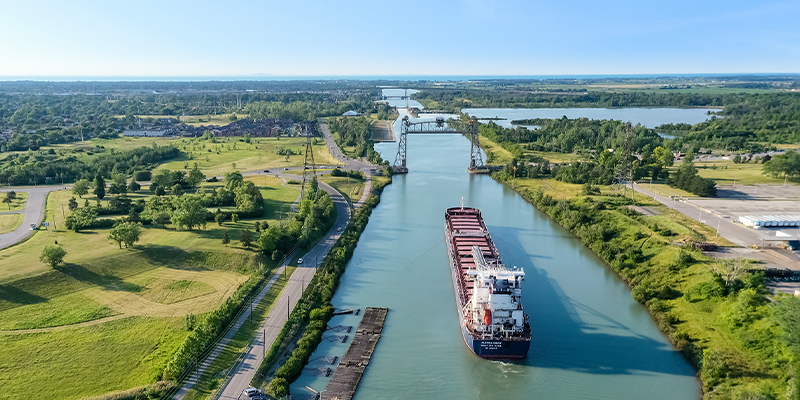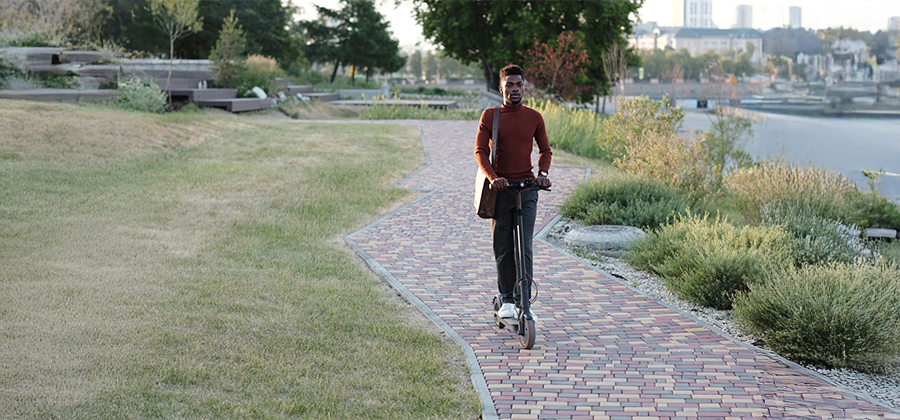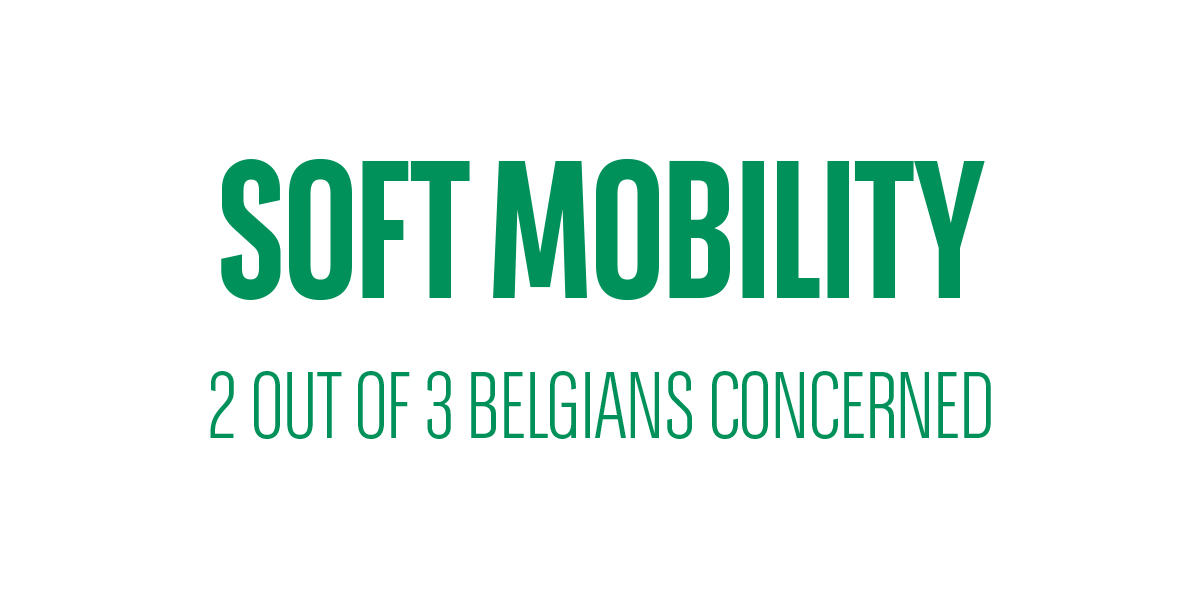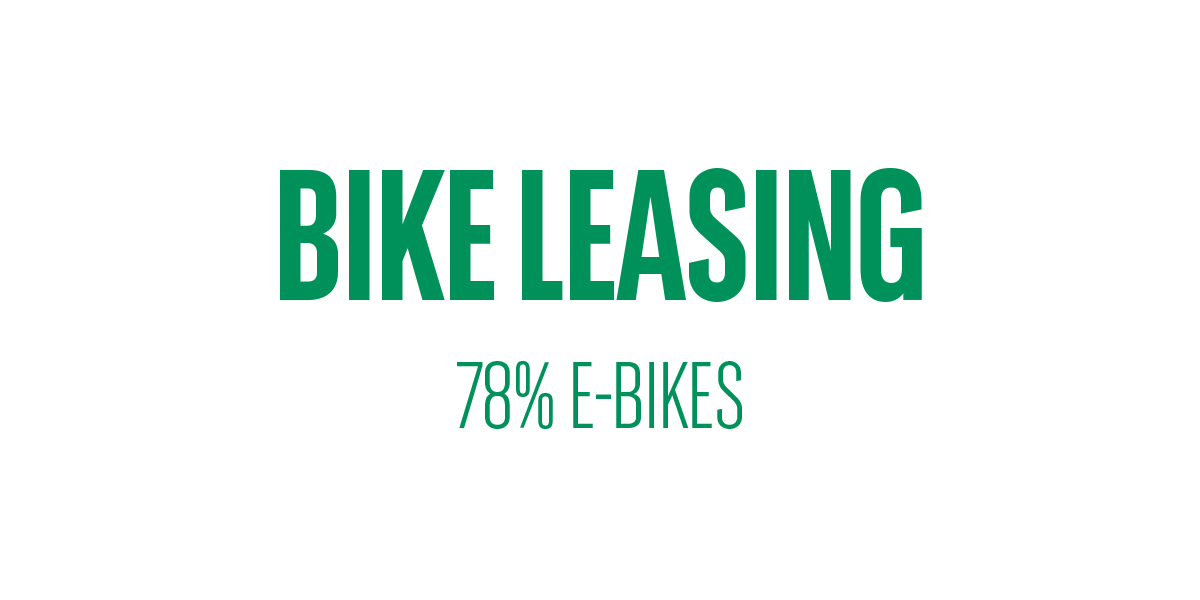What if pollution became a raw material? The start-up Graviky, singled out at the Hello Tomorrow Global Summit, is offering a rather original eco solution.

While some start-ups are working to protect people from pollution, others are seeking to exploit its potential. This is why Graviky Labs, a spinoff of the MIT Media Lab selected as one of the six best start-ups in the environment category at the Hello Tomorrow Summit 2017, has developed Air-Ink, the first ink produced using pollution.
Thanks to Kaalink, a technological process installed in the exhaust pipe extension of a motor vehicle, fine particles are captured from the soot emitted. This collected material passes through several processes in order to extract the heavy and carcinogenic metals. This is how the final product, a carbon-based purified pigment, is obtained.
Next, this pigment passes through other chemical processes in order to produce different types of inks and paints. But why not simply eradicate the pollution rather that create ink from it? In order to eliminate its propensity to float in the air, explains Graviky. The patent is currently pending for this technology, which is designed for artistic use. The process has already captured 1.6 billion micrograms of particles, which is the equivalent of cleaning 1.6 billion litres of outside air. In the words of Richard Buckminster Fuller, an American architect, designer, inventor and futurist, "Pollution is nothing but the resources we are not harvesting. We allow them to disperse because we've been ignorant of their value."
Source: L’Atelier
06.09.2023
New mobility: driven by technology
Can technology drive the transition towards more sustainable mobility for businesses? See what Philippe Kahn, Mobility Solutions Expert, has to say on the matter.
Now more than ever, businesses need to rethink mobility so that it forms part of the sustainable transition that needs to take place in our societies. Since 1 July 2023, the regulation meaning that company vehicles with combustion engines will no longer be longer tax-deductible by 2026 has started to have an impact. At the same time, Belgium’s Federal Mobility Budget and its recent developments are making this (r)evolution much more concrete and practical. And one thing is for sure: technology – and especially apps – have a key role to play. Philippe Kahn, Mobility Solutions Expert at Arval BNP Paribas Group, explains why.
1 July 2023: a key date
“In the few weeks that have passed since the pivotal date of 1 July 2023, we have already seen a change in the needs expressed by our corporate customers,” says Kahn. "Some of them had already taken practical steps towards sustainable transition. But nowadays, more and more of them also have to address the specific questions and concerns of their employees. How will I be able to use an electric car when I live in a city and have no charging stations available? Do I want to search for a reliable place to charge every day? And am I ready to fundamentally rethink how I get around? Providing a satisfactory answer to these questions is inevitably a priority for employers. As well as the end-to-end management of company electric vehicles – including the question of charging them – more and more companies are starting to rethink their overall mobility policy, analysing all existing alternatives, particularly multimodal solutions. And that’s great news, because it’s essential for their future. So I think the demand for such solutions is only going to grow. Technology, and apps in particular, are key tools for a smooth transition".
Anticipating change to serve companies better
Whereas this issue is only just emerging for many companies, it has been a priority for Arval BNP Paribas Fortis and Philippe Kahn for years. "For more than five years now, we have been anticipating the changes that are now taking place, ensuring that our vision of mobility and expertise go far beyond leasing. We now have an entire department that deals with these matters exclusively. This enables us to meet and even anticipate the needs of companies that have no experience of these issues, and who sometimes feel a little lost when it comes to this revolution in travel.”
A simpler, smoother experience thanks to technology
But why and how is technology playing an important role in this transition to more sustainable business travel? "It’s making the experience of new mobility easier and smoother for its users. And that's where the latest developments in the market are heading," says Kahn. "In fact, that's also what our new Mobility Arval App now offers our corporate customers. It makes it easier for employers to manage the mobility budget established by the federal authorities. This budget, its three pillars and recent developments are crucial factors when a company is rethinking its mobility. But at the same time, it involves some regulatory complexity. That’s why, five years ago, we started developing a whole range of technological tools to help companies deal with these matters. For example, we make it simple for our customers to manage the combination of an electric car and bicycle within this mobility budget. In this spirit of innovation, and aiming to improve the user experience, our app integrates all facets of new business mobility, which are all accessible from a smartphone. Use of public transport, shared mobility, taxis, and even parking – even though this is not one of the pillars of the mobility budget – everything is in one place. The app also makes it easier to manage transactions: low-value mobility transactions, such as buying a bus ticket, are automatically captured and validated, so manual checks are no longer needed. Similarly, there is no longer any need to advance money to employees or reimburse them for anything, and no need for them to keep and present tickets or any other proof of purchase. In short, our app translates the entire mobility budget, which can be pretty complex, into a user-friendly tool where all the important components are taken into account: car, bicycle, scooter, multimodal solutions, public transport, shared mobility, etc."
Technology as a strategy accelerator
Arval Belgium’s innovations perfectly illustrate why technology is an important accelerator when implementing new mobility strategies. And it goes without saying that what exists today will evolve very quickly, leading to an ever-richer user experience. As Philippe Kahn says, "there are a lot of innovative tools out there already. But one of the challenges, linked to the complexity of the situation in Belgium, is to bring together all the players involved under the same umbrella, so that the result of this collaborative work can be found in a single 'magic' app. The solutions that exist today in Belgium are often local in scope. This is a limitation that doesn’t exist in the Netherlands, for example, thanks to their OV card. Belgium’s urban planning realities are also a challenge: outside the major urban centres, it’s less easy to set up mobility hubs in which all modes of travel are accessible."
One thing is certain: for companies, the transition to new forms of mobility is well underway. And the new Arval Belgium app is a valuable tool for those companies. “This technological innovation now makes it possible to mitigate the regulatory complexity for employers, and to make multimodal transport a very fluid experience for employees,” concludes Kahn.
Arval Belgium SA, Ikaroslaan 99, 1930 Zaventem – Registered with the Brussels trade register – Belgian VAT number 0436.781.102. Company with an ancillary insurance brokage business, registered with the Belgian Financial Services and Markets Authority (FSMA) under number 047238 A. Subject to acceptance of your request.
Arval Belgium SA is a subsidiary of BNP Paribas Fortis S.A.
22.06.2023
Shipping: focus on the impact of decarbonisation and energy transition
At the end of May, BNP Paribas Fortis and the University of Antwerp brought together a number of experts to discuss the many challenges involved in decarbonising the shipping sector. What are the key points to remember?

Established 12 years ago, the BNP Paribas Fortis Chair in Transport, Logistics and Ports - linked to the University of Antwerp - conducts in-depth research to find concrete and innovative ways of creating an increasingly resilient – and sustainable – maritime ecosystem.
Building on the success of its first two major events in 2017 and 2019, the Chair has decided to do it again this year. On 25 May 2023, a number of experts and stakeholders from the port and maritime transport sector gathered at the BNP Paribas Fortis premises in Antwerp to discuss the impact of decarbonisation on the maritime ecosystem.
Here are their main findings...
1 – We need to move up a gear
Shipping is currently the most carbon-efficient form of commercial transport in terms of CO₂ emissions per tonne and kilometre. But it can do better.
So far, industry players have favoured quick wins, such as modifying ship propellers and adjusting speeds. But on 25 May, the experts agreed that now is the time to experiment with new fuels and technologies, and move towards (near) zero emissions. The pace of change is accelerating, but there's no silver bullet yet. The costs (and risks) are huge.
2 – International regulation, please (and only one)!
The regulatory framework is complex and constantly evolving.
The International Maritime Organisation (IMO), which reports to the UN, is committed to reducing the carbon emissions from all ships by 40% by 2030 and by 70% by 2050 compared to 2008.
The European Union has committed to reducing greenhouse gas emissions from shipping by at least 55% by 2030, compared to 1990 levels. By 2024, an Emissions Trading Scheme (ETS) will apply to all ships of more than 5,000 gross tonnes sailing to or from EU ports.
In short: things are moving, and in the right direction. The problem, according to industry players, is that numerous regional and supra-regional programmes continue to coexist. This leads to administrative and financial overload.
On 25 May, all those involved agreed on two points: firstly, that a single international policy is essential, as this is a global sector; and secondly, that players who do not comply with the rules must be sanctioned.
3 – The transition to carbon neutrality will be costly
The investments required to build new greener ships is estimated at $5 trillion by 2050. The cost of modernising the existing fleet is not yet known, but it will not be zero. In addition, the investment required to renew port infrastructures promises to be huge.
4 – Fuel and/or preferred technology: uncertainty reigns
What will be the fuel or technology of the future? Opinions are divided.
Many types of low-emission fuels are likely to coexist for some time. Electricity will only be used on coastal vessels, ferries and some tugs. Large ships will use liquefied natural gas (LNG) or liquefied petroleum gas (LPG), methanol, ammonia and possibly even biofuels.
Long-distance shipping will initially depend on heavy fuel oil, possibly with carbon capture and storage. Hydrogen has potential, but its density, storage and handling raise questions. Wind, solar and nuclear power are also in the mix.
But the real problem at the moment is that while the number of ships that can run on cleaner fuels is increasing, these fuels are not yet sufficiently available internationally. In other words, supply is much lower than demand.
5 – Banks play a key role
Banks have a key role to play in financing the energy transition. In 2019, eleven financial institutions – mostly European, including the BNP Paribas Group – launched the Poseidon Principles to support the transition to low-carbon shipping. This global framework makes it possible to measure and disclose the carbon intensity of bank loans in the maritime sector. There are now 24 signatories, including Japanese financial institutions. And that’s good news.
Want to know more?
Presentations, videos and photos from the 25 May event are available on this page.
02.05.2023
Where are we on the road to new mobility?
A mobility survey carried out on behalf of BNP Paribas Fortis shows that this issue will remain a major challenge for the years to come. The bank is firmly determined to play its part.
A survey among 2,000 people, and representative of the Belgian population, on mobility shows that the switch to electric driving is slowing. Almost 80% of those surveyed still drive a diesel or petrol vehicle, and more than a third of them have no intention of trading in their cars for a more environmentally friendly model any time soon. And yet almost 50% want to be driving electric by 2029. But before that switch, some hurdles first need to be cleared. According to two-thirds of respondents, the bank needs to take a proactive role in the transition to sustainable mobility.
- Only 10% of cars on the streets today are electric, hybrid or run on hydrogen. Users of these vehicles confirm they are very satisfied. Though most have their own charging station, public charging stations are a bottleneck.
- While fighting climate change remains the main argument for switching, changing mobility habits isn’t so easy. The switch to electric is slow, and more incentives are needed, such as new tax measures, and above all, a commitment from the government. Prices also need to come down. It is clear that the practical issues of driving and charging times mean people hesitate to make the switch.
- As a result, enthusiasm about new mobility initiatives is rather muted. Although, especially in big cities, an app that combines mobility options has good chances of success.
- Mobility and work are strongly linked. One in three people spend at least an hour a day travelling to/from work. It turns out that teleworking is a solution for only 50% of the people, and that the other half of the population don’t have the opportunity to work from home.
- More awareness needs to be created around new mobility. Not everyone is familiar with shared cars, bikes and charging stations yet.
Mobility partner
BNP Paribas Fortis is determined to contribute to more sustainable mobility and be a mobility partner for both professional and private customers. We are doing this by informing audiences of all the advantages of an environmentally friendly switch. And also by offering support through financing, insurance and leasing. Our goal is to provide a global response to tomorrow's mobility needs through innovative services.
02.05.2023
Travelling to work: the rise of cycling!
More and more people are cycling to work. Mobility solutions expert Philippe Kahn explains how and why.

People are changing the way they travel to limit their environmental impact: behaviours are starting to shift, and the use of bicycles is rising, including and especially for travelling to and from work. We spoke to Philippe Kahn, Mobility Solutions Expert at Arval BNP Paribas Group, about these developments.
Two out of three Belgians use soft mobility, mainly bicycles

According to Profacts’ “Mobility Tomorrow & Beyond” survey, two out of three Belgians have adopted soft mobility. "But the biggest change is the increasing use of bicycles for business travel and commuting. People are also using bicycles more on the school or nursery run, facilitated by the arrival of electric cargo bikes on the market," says Kahn.
A favourable regulatory framework
But what are the reasons for the increased use of bicycles for business travel? “Let’s first take a look at how the regulatory framework has changed," says Kahn. "In Belgium, the creation of the federal mobility budget has made alternative ways of travelling attractive for all employees. The budget makes it possible to choose a comfortable company bicycle as part of a tax-friendly salary package. Moreover, this mobility budget can even be used to cover housing costs if you work from home more than half the time or if you live within 10 km of your place of work. So instead of having a company car, people can choose to have a combination of an electric bicycle and a contribution to their housing costs. Furthermore, two measures effective from 1 May 2023 should reinforce this trend: the bicycle allowance for commuting is increasing to €0.27 net per km travelled, and all Belgian employees will be entitled to this allowance. In practical terms, this means that those who choose to cycle for these journeys will be substantially rewarded.”
Investment in public infrastructure is paying off
Another important factor in the increased use of bicycles is the development of road infrastructure.
Philippe Kahn: "One factor that can convince people to cycle to work is the certainty of a safe journey. A few years ago, cycling to work in Brussels, for example, could be dangerous. But today, cycling infrastructure is making these journeys increasingly safe, in particular thanks to the cycle motorways on which only bicycles can travel. Infrastructure investments are now also happening in the rest of Belgium, not just Flanders and its major cities. In recent years, Brussels has undergone significant changes, and things are also starting to move in Wallonia.”
Half of all Belgians live within 15 km of their place of work
Distance from the workplace is also crucial in determining how attractive cycling is. "One in two Belgians lives within 15 km of their workplace, a distance that you can easily cycle," adds Kahn. "Along with the Improved infrastructure, this means that cycling to work is a realistic option for many Belgians. And the €0.27 per kilometre allowance will be an added incentive for them to make the change.”
What is the federal mobility budget?
This scheme allows the budget initially allocated to an employee’s company car to be divided into three pillars within a salary package. These three pillars are:
- a car with no or low CO2 emissions (less than 95 g/km), such as an electric vehicle;
- sustainable means of transport, including cycling, but also in some cases this pillar can also cover housing costs, such as rent or mortgage repayments;
- the balance of the mobility budget, which is paid in cash.
The mobility budget makes it possible, for example, to replace a combustion-powered company car with an electric car and a bicycle, with the same tax-friendly terms for both the employer and the employee.
78% of leased company bicycles are electric
To meet the needs of companies and their staff, Arval is now offering bicycle leasing. This full-service lease covers maintenance, breakdown assistance, insurance and repairs, as is traditionally the case for a car. Philippe Kahn points out some very significant trends in this area: "60% e-bikes and 18% speed pedelecs: in total, 78% of our leased company bikes are electric.
 High-end bicycles costing several thousand euros, such as electric cargo bikes, are also highly successful, which is probably due to opportunity: the mobility budget or employer “cafeteria plan” benefits packages are making it possible for people to acquire these bikes. But it may also be a consequence of Belgium’s specific tax regulations: the more expensive the bicycle, the more significant the tax incentive. Another interesting observation is that when a bicycle replaces a car, it’s usually the family’s second car. So we’re not yet seeing any radical replacement of cars by bicycles, but the emergence of the company bicycle is definitely reducing the total number of kilometres travelled by car.”
High-end bicycles costing several thousand euros, such as electric cargo bikes, are also highly successful, which is probably due to opportunity: the mobility budget or employer “cafeteria plan” benefits packages are making it possible for people to acquire these bikes. But it may also be a consequence of Belgium’s specific tax regulations: the more expensive the bicycle, the more significant the tax incentive. Another interesting observation is that when a bicycle replaces a car, it’s usually the family’s second car. So we’re not yet seeing any radical replacement of cars by bicycles, but the emergence of the company bicycle is definitely reducing the total number of kilometres travelled by car.”
Digital applications: shifting up a gear
Lastly, Kahn points to another factor that could encourage more people to take up cycling to work. "I think that technology, and in particular digital applications, can make a big difference. We can expect strong growth in the market for apps dedicated to commuting by bike. The business model for on-the-go electric bike rental is already based on a smartphone app. So imagine the success of an application that gives you a safe and bicycle-friendly route for travelling to and from work, and the boost that this could give to this type of travel," concludes Kahn.
